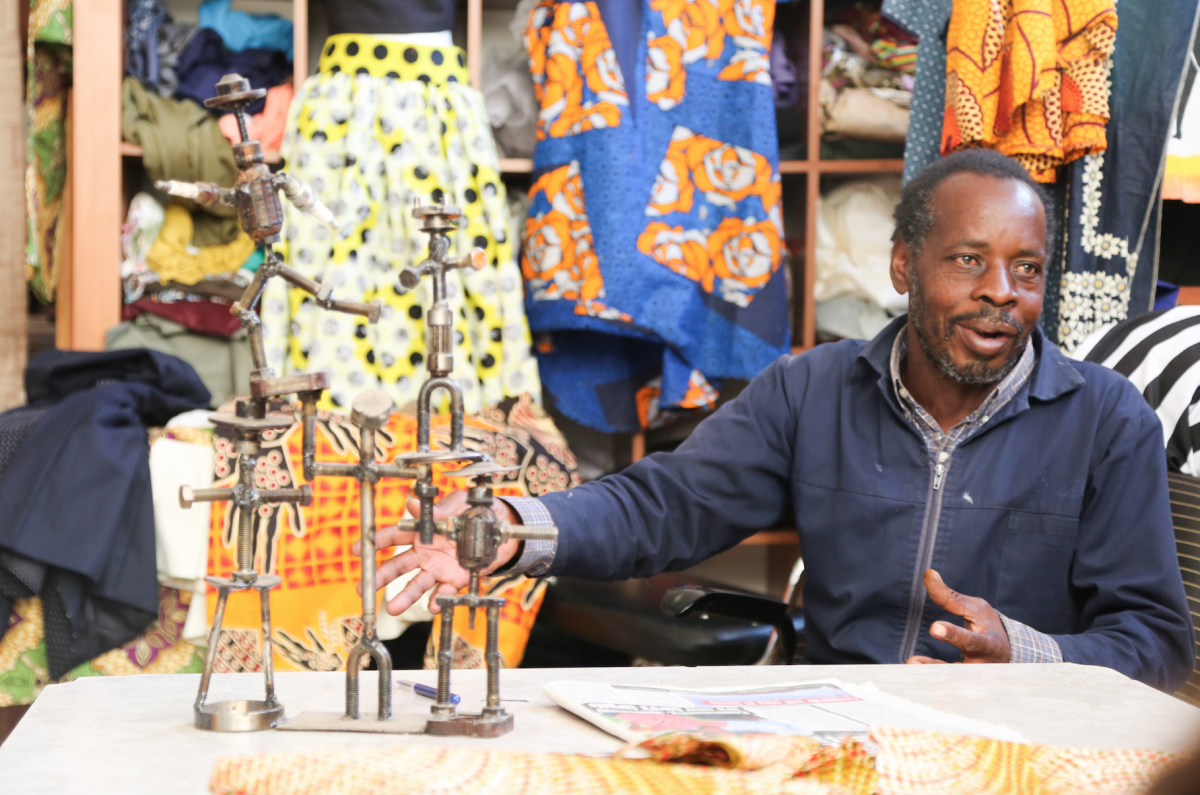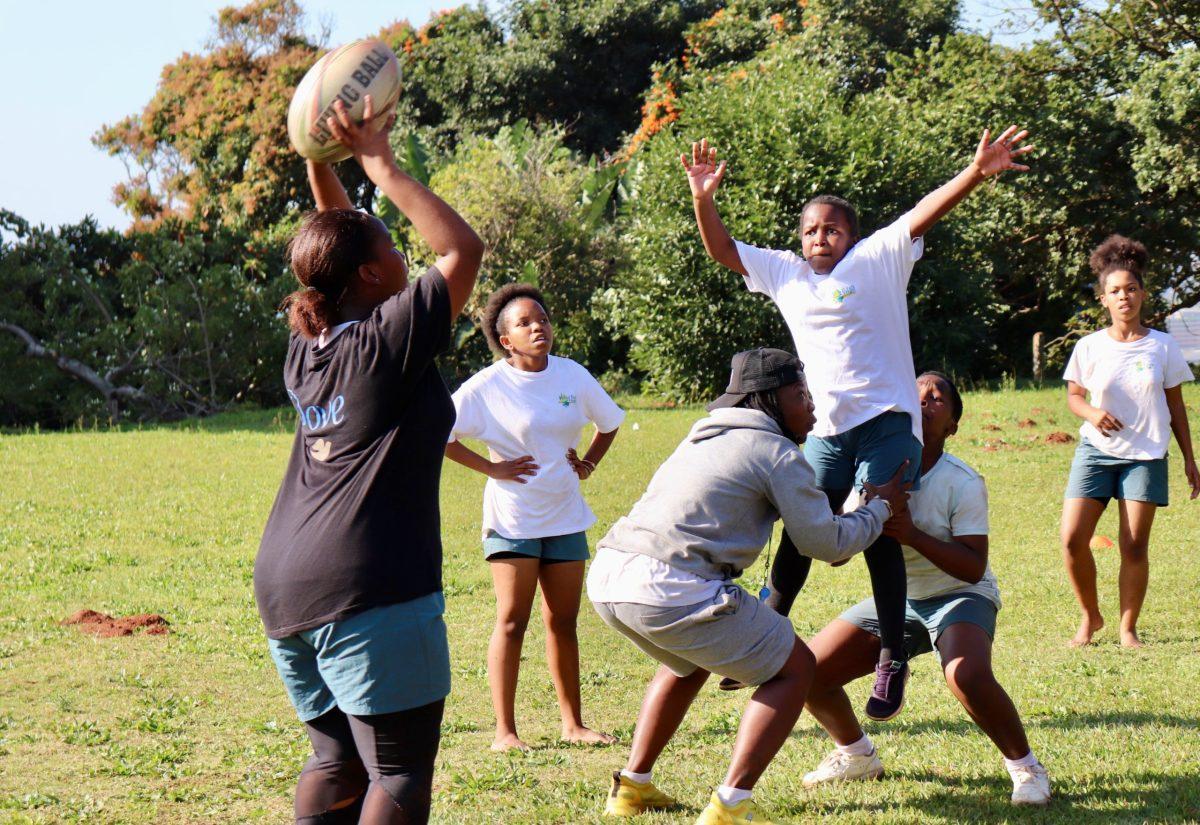Johannesburg, South Africa – In April 2010, political operatives from the Zimbabwe government burned down Givemore and Tsitsi Tembo’s house in Shamva township in Mashonaland province. Fearing for their lives, the Tembos decided to place their children in the care of relatives and leave the area.
“It was a difficult journey,” said Givemore Tembo. “We had no documents and no money.”
Over the next seven days, the Tembos walked south about 700 miles (1,100 kilometers) to neighboring South Africa, where their request for asylum was granted.
According to the migration dynamics of the 2011 South African census, there were an estimated two million foreigners living in South Africa when the Tembos arrived. The majority of those inhabitants originated in Africa and 45 percent identified as Zimbabwean.
Through word of mouth, the Tembos were directed to a Methodist church in central Johannesburg, run by Bishop Paul Verryn, a retired Methodist minister and activist in the refugee crisis, who helped them get their three children out of Zimbabwe to join them in South Africa.
The Methodist Church of South Africa in Soweto, which opened in 1973, assists refugees from places like Somalia, the Democratic Republic of Congo and Zimbabwe as well as South African foreign nationals. Housing and sanitation are two of the biggest problems in South Africa, said Bishop Verryn.
“Being a refugee turns you into a nobody, a thief, nuisance, and feeling like you do not belong,” said Verryn.
In 2011, the Tembos started selling mops and brooms on the streets to feed their family.
“We had nothing, nothing, nothing,” said Tsitsi Tembo.
The Tembos found an additional job handing out flyers.
“They paid us forty rands ($3) [a day], so we could feed ourselves and our children,” said Givemore Tembo.
The Tembos began thinking about ways to generate a more steady income to further sustain them.
“I thought what can I do differently without income and/or capital so that I can support my family,” said Givemore Tembo.
The Tembos now live in a space in the Methodist Church Community Centre in Soweto, just outside Johannesburg. There the Tembos share a workshop and business in which Tsitsi Tembo sews and Givemore Tembo makes art.
Pointing to the sewing machines on either side, Tsitsi said the couple’s many odd jobs went to pay for the three sewing machines and other supplies in the workshop.
“It has taken two to three years of selling brooms and mops to afford these,” said Tsitsi Tembo, pointing to the machines.
Having learned to sew from her mother, Tsitsi Tembo started from scratch by making and selling curtains. She also began creating garments for customers with their own fabrics.
“Since I do not have much capital to buy my own fabrics, customers bring their own,” said Tsitsi Tembo.
Magazines, look books and a poster filled with models wearing intricate patterned dress are available for garment inspiration. Customers can also have their garments personalized and/or tailored with a 24-hour turnaround time.
While his wife sewed, Givemore Tembo turned to art, a hobby that became another way to support his family.
“It was a hidden talent in me,” said Givemore Tembo.
Shortly after arriving in South Africa, The Funda Community Center in Soweto reached out to Givemore Tembo and invited him to design and create a mosaic mural inside the Nike Football Training center in Soweto. The mural depicts the history of Soweto and was intentionally created in the month of May which is celebrated as Africa Month.
Three titanium metal mid-flight butterflies grace the back wall of the couple’s workshop. Tembo said what he likes most about the butterflies is their “beauty and peace.” Nature is the overall inspiration for Tembo’s art. Elements like insects, spiders and mostly natural things are found within his designs.
Tembo uses a combination of welding and branding to make each piece, incorporating and repurposing recycled materials he finds, such as screws, pinecones and animal bones. The shape and texture of an item also plays a role in how an item will be used.
“The object tells what it will become,” Tembo said.
While the Tembos’ business is growing, it is not without problems.
According to Givemore, people do not know the value of what is being made and things are getting stolen. Factors like additional storage space, marketing and negotiating selling prices are all issues the business faces.
While maintaining and strengthening their business, the Tembos are also giving back to their community through a program run by Tsitsi Tembo called Mentoring Empowerment Programme for Young Women (MEMPRO), which educates and mentors young women about female empowerment while also enhancing their confidence. With an increasing risk that young women in South Africa face today of femicide, educating women is a key component in prevention (of femicide), said Givemore Tembo.
“Self-esteem,” said Tsitsi Tembo, is the reasoning behind why MEMPRO was started and is important for female youth to have.
While the Tembo family has been granted asylum status in South Africa, every six months they must renew their documents. According to Tsitsi Tembo this process, which takes around three months, is the grueling reality of a family with an impermanent home. She wants better for her children.
“Living as a family is far much better now,” said Givemore Tembo. “I want my kids to be finalized, so they do not deal with these problems.”
This story has been written by students participating in the 2018 St. Joseph’s University South Africa Study Abroad program. Eight students, led by St. Joe’s faculty, will report on stories from South Africa during the month of June.







































Linda B • Jun 14, 2018 at 7:32 am
Great job giving a voice to these families.